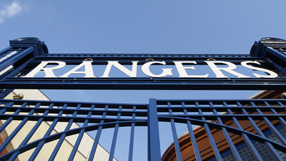
- Select a language for the TTS:
- UK English Female
- UK English Male
- US English Female
- US English Male
- Australian Female
- Australian Male
- Language selected: (auto detect) - EN
Play all audios:
I had dinner last week with a group of friends – well-educated, liberal professionals in their mid-twenties. Pride came up in conversation and of course, it went without saying that we were
all in favour: how could you not support this inclusive, rainbow-hued jamboree? But when I asked what Pride was for – what is the point of the event – my friends were bemused. What’s the
point? To celebrate love, of course! Love is Love! Love Wins! On the 50 th anniversary of the Stonewall riots in 1969, now seems a good time to revisit what Pride means, and to challenge
the blandness of the prevailing tone. Why should we be celebrating ‘love’ at Pride? The Stonewall riots didn’t happen because of ‘love’. They were the result of extreme, long-term tensions
between the New York Police Department and the city’s marginalised queer community. What started off as a radical and violent attempt to force change, and was seen as an act of liberation by
its founders, has been defanged by corporate influence. The anger, energy and desire for change of this early movement has been derailed by the smothering melange of global corporate
marketing departments and the need for easy, bite-size slogans to be disseminated via social networks. It’s almost too obvious to point out the virtue-signalling of global brands like
Barclays, Google or Coca-Cola screeching at consumers via every possible medium that Love is Love! and Love Wins! But it’s worth reminding ourselves of the emptiness of these gestures.
First, these companies run ‘brand-safe’ Pride-related campaigns in Western countries where, more or less, the message of the adverts is not going to provoke howls of condemnation from
locals. Secondly, the message itself is so diluted as to be almost meaningless. Who could possibly disagree – or agree, for that matter – with the epic tautology of ‘Love is Love’, or the
reductive cod-Manichaeism of ‘Love Wins’? So what? Why is this important, if – in admittedly clumsy fashion – brands are improving the lives of people in historically persecuted LGBT
communities by lending their corporate clout to the cause? It matters because brands are reducing issues that are often complex and fraught even within LGBT circles – such as the rights of
transgender women and how these relate to their cisgender female counterparts – to simple marketing slogans that create potentially harmful binaries. Either you’re on the right side of
history, or you’re not. The binary is admittedly fairly easy to navigate when applied to the ‘LGB’ part of the acronym. My educated, liberal friends would have no problem with a man
kissing, living with or marrying his male partner, I’m sure. The binary makes things trickier at the ‘T’. Take women’s sports, where physical strength is important and consequently the role
transgender women is an ongoing debate. How does ‘Love Wins’ apply here? Taken to its logical conclusion, either you believe absolutely that transgender women or men are exactly the same as
their biologically male or female counterparts, or you’re a transphobe. My dinner companions might have found this harder. So yes, corporate Pride slogans are meaningless and
self-serving, but they’re also actively damaging: they drain the nuance from issue and, by encouraging consumers to think in black-and-white terms, entrench another front in the culture war.
That’s the point of corporate marketing: it’s in brands’ interest to project a clean, attractive image through well-packaged, easily-digestible messaging. Simple slogans and the bright
colours of the Pride flag are perfect for this. But Pride was never about clear issues that were easily marketable. The Stonewall riots weren’t brand-safe in 1969: they were led by
persecuted, often visionary, sometimes difficult people who would be out of place in most boardrooms both then and now. It seems a shame that corporations have taken over the Pride agenda
today.









